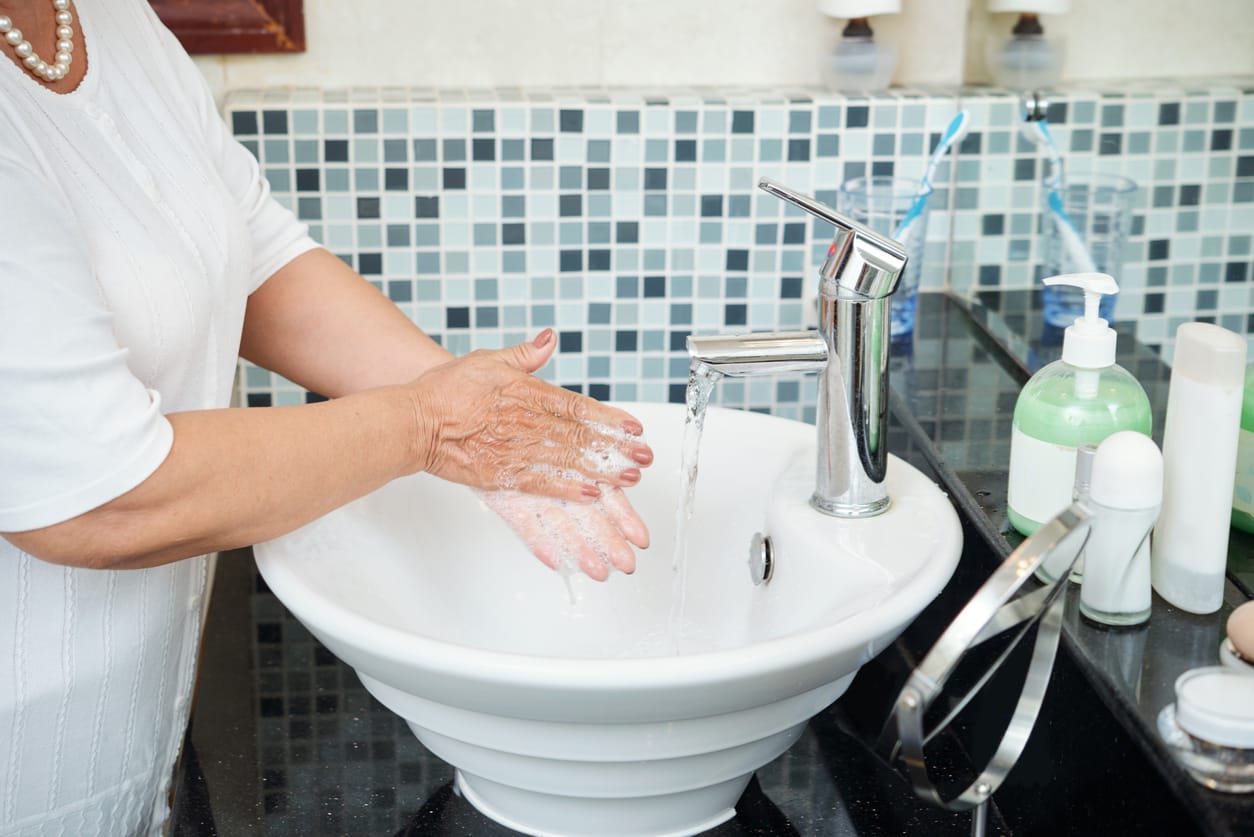Maintaining proper hygiene is crucial for the health and safety of seniors, and caregivers play a pivotal role in ensuring this standard. Proper handwashing and rigorous sanitation practices are essential in preventing the spread of infections, which can be particularly dangerous for older adults with potentially weakened immune systems. This blog will explore why these hygiene practices are so important, provide practical tips for effective handwashing and sanitation, and highlight how these measures can enhance the overall well-being and quality of life for the elderly. By embracing these strategies, caregivers can create a healthier and safer environment for their loved ones.
Understanding the Importance of Hygiene in Elderly Care
Maintaining high standards of hygiene is crucial for the health and safety of elderly loved ones, as it directly impacts their overall well-being. Here’s why it’s so important:
- Increased Vulnerability to Infections: Older adults have weakened immune systems and may be more susceptible to infections due to age-related changes and chronic health conditions.
- Common Illnesses Prevented by Good Hygiene: Proper hygiene practices can help prevent infections such as respiratory illnesses, gastrointestinal diseases, and skin infections.
- Impact of Poor Hygiene: Neglecting hygiene can lead to a higher risk of infections, frequent hospitalizations, prolonged recovery periods, and overall deterioration in health and well-being.
A study by the Centers for Disease Control and Prevention (CDC) found that healthcare-associated infections (HAIs) affect approximately one in thirty hospital patients, emphasizing the critical role of hygiene in preventing these infections.
Effective Handwashing
Maintaining high standards of hygiene is crucial for the health and safety of elderly loved ones, as it directly impacts their overall well-being. Here’s why it’s so important:
- Increased Vulnerability to Infections: Older adults have weakened immune systems and may be more susceptible to infections due to age-related changes and chronic health conditions.
- Common Illnesses Prevented by Good Hygiene: Proper hygiene practices can help prevent infections such as respiratory illnesses, gastrointestinal diseases, and skin infections.
- Impact of Poor Hygiene: Neglecting hygiene can lead to a higher risk of infections, frequent hospitalizations, prolonged recovery periods, and overall deterioration in health and well-being.
Sanitation Tips for Caregivers and Elderly Loved Ones
Maintaining a clean and hygienic environment for elderly loved ones is crucial for their health and safety. To achieve this, focus on the following aspects:
Maintaining a Clean Environment
Regular cleaning of frequently touched surfaces like doorknobs and light switches is essential to minimize the spread of germs. Dispose of used tissues and waste promptly and safely to avoid contamination and unpleasant odors. When cleaning, opt for disinfectants that are effective yet gentle, avoiding harsh chemicals that could be harmful to sensitive seniors.
Personal Hygiene for the Elderly
Establishing a regular routine for bathing and personal grooming helps ensure cleanliness and comfort for elderly loved ones. Clean clothing and bedding should be regularly changed and washed to prevent skin issues and maintain a hygienic living space. Emphasizing the importance of oral hygiene, including brushing teeth, flossing, and proper denture care, helps prevent oral health issues and infections.
Special Considerations for Immunocompromised Seniors
For those with weakened immune systems, implementing extra precautions during flu season or outbreaks is vital. This includes limiting exposure to crowded places and practicing rigorous hand hygiene. Additionally, safe food handling and preparation practices, such as thorough handwashing and proper food storage, are essential to prevent foodborne illnesses and protect vulnerable individuals.
Encouraging Compliance with Hygiene Practices
Ensuring that elderly loved ones follow proper hygiene practices is vital for their health. Here’s how to encourage compliance effectively:
- Educating the Elderly on Hygiene Importance: Provide simple explanations about why hygiene is important. Use visual aids and posters to serve as constant reminders and reinforce the message.
- Making Hygiene Practices Easier: Set up accessible handwashing stations and provide easy-to-use hygiene products, like no-rinse hand cleansers. Offer assistance to those with mobility or dexterity issues to make hygiene routines more manageable.
These approaches help elderly individuals understand and maintain essential hygiene habits, contributing to their overall well-being. A study by the National Institute on Aging found that simple interventions, such as providing education and improving access to hygiene supplies, can significantly increase hygiene compliance among older adults.
In conclusion, prioritizing hygiene is essential for preventing illness and ensuring the well-being of elderly loved ones. By implementing effective hygiene practices, caregivers can significantly reduce the risk of infections and create a safer, healthier environment. Commitment to educating loved ones, simplifying hygiene routines, and maintaining a clean living space is vital. These efforts collectively enhance the quality of life for elderly individuals, fostering a more comfortable and supportive setting where they can thrive.





